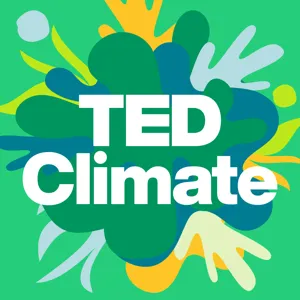Podcast Summary
China's net zero commitment and its global impact: China's pledge to reach net zero emissions by 2060, as the world's second largest economy and largest carbon emitter, underscores the need for global cooperation and significant domestic actions to combat climate change.
China's commitment to reach net zero emissions by 2060, being the world's second largest economy and largest carbon emitter, holds significant implications for the global fight against climate change. This pledge signifies unprecedented domestic actions at an enormous scale, affecting not only China but also the world due to its size. The Colorado River's water crisis highlights the importance of cooperation among states, while China's leadership role in reducing emissions adds to the urgency of global efforts. Meanwhile, tools like Canva's AI-driven presentation software and Slack's work management platform can help businesses streamline their operations and stay focused on growth.
China's Role as the Largest Emitter and Leader in Clean Energy: China, the world's largest emitter of CO2, is also the fastest and largest deployer of clean, green, and low-carbon technologies. Despite being the largest consumer of fossil fuels, China's transition to net zero emissions could create a positive spillover effect on other countries and bring down the cost of clean energy globally.
China, which became the world's second-largest economy around 2010, has also become the largest emitter of CO2 emissions, representing 28% of global emissions in 2019. This significant increase in emissions is largely due to the country's rapid economic growth, which has been primarily driven by fossil fuels. In 2020, 84% of China's primary energy consumption came from fossil fuels, making it the world's largest consumer of coal, oil, and the single largest contributor to the growth in demand for gas. However, there is another side to the story. China has also seen the fastest and largest deployment of clean, green, and low-carbon technologies in the world in the past decade. This includes leading the way in non-fossil energy, low-carbon transportation, green buildings, and more. In July 2021, China launched the world's largest emissions trading scheme, putting a carbon price on 12% of global CO2 emissions. China is also the largest producer and processor of critical minerals used for clean energy technologies and manufactures the majority of wind turbines and solar panels. The transition to net zero emissions in China could create a positive spillover effect on other countries, bringing down the cost of clean energy globally. However, the road to net zero will not be an easy one, and China's leader Xi Jinping has acknowledged the need for extraordinary efforts due to the shorter time span compared to other developed countries.
China's Net-Zero Emissions Pledge and Challenges: China aims to peak emissions by 2030 and reach net-zero by 2060, but this timeline may not limit warming to 1.5 degrees Celsius. Challenges include urbanization, modernization, and transforming heavy industry. China plans to phase out coal, increase electrification, and invest heavily to meet its net-zero goal.
China, the world's largest emitter of greenhouse gases, has pledged to peak its emissions by 2030 and achieve net-zero emissions by 2060. However, this timeline is considered insufficient for limiting global warming to 1.5 degrees Celsius. China faces unique challenges, including urbanization and modernization for its large population and the transformation of its heavy industrial sector, which contributes to a significant portion of its emissions. To meet its net-zero goal, China plans to phase out coal consumption and increase electrification, aiming for electricity to meet 79% of its final energy consumption by 2060. China has also committed to not building new coal-fired power plants abroad. These efforts, while ambitious, will require significant investments and policy changes to address the challenges of economic development and reducing emissions.
China's Emissions Peaking Ahead of Schedule: China, the world's largest greenhouse gas emitter, is making progress towards peaking emissions earlier than pledged, potentially even before 2025, through structural reforms, fuel switching, technology upgrades, and the exploration of negative emissions technologies and renewable energy sources.
China, the world's largest emitter of greenhouse gases, is making significant strides towards peaking its emissions earlier than pledged, potentially even before 2025. The country is undergoing structural reforms, fuel switching, and technology upgrades, including the exploration of negative emissions technologies and the expansion of renewable energy sources like wind and solar. Beijing, as well as many high and medium provinces, have already achieved emissions peaks. China's leadership is committed to moving away from a GDP-driven economy towards an "ecological civilization," having nearly doubled its GDP per capita since 2010 while maintaining a steady emissions per capita. Recent actions, such as China's crackdown on energy-intensive cryptocurrency mining and the pause on new Liang Gao Industries projects, demonstrate the government's determination to limit carbon emissions and accelerate the transition towards a low-carbon economy. Transformation may seem slow initially, but once the direction is set, actions can follow an exponential path.



